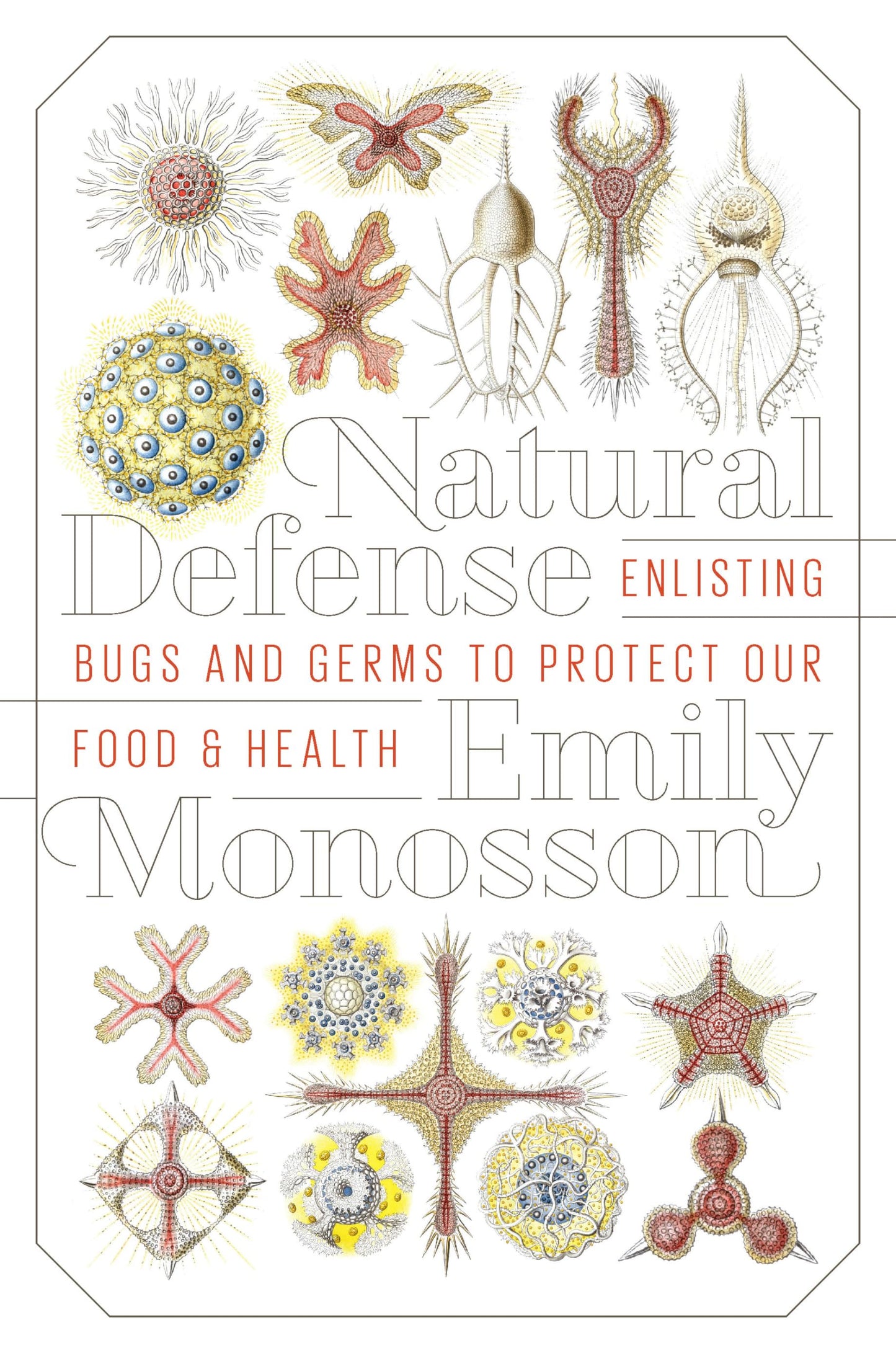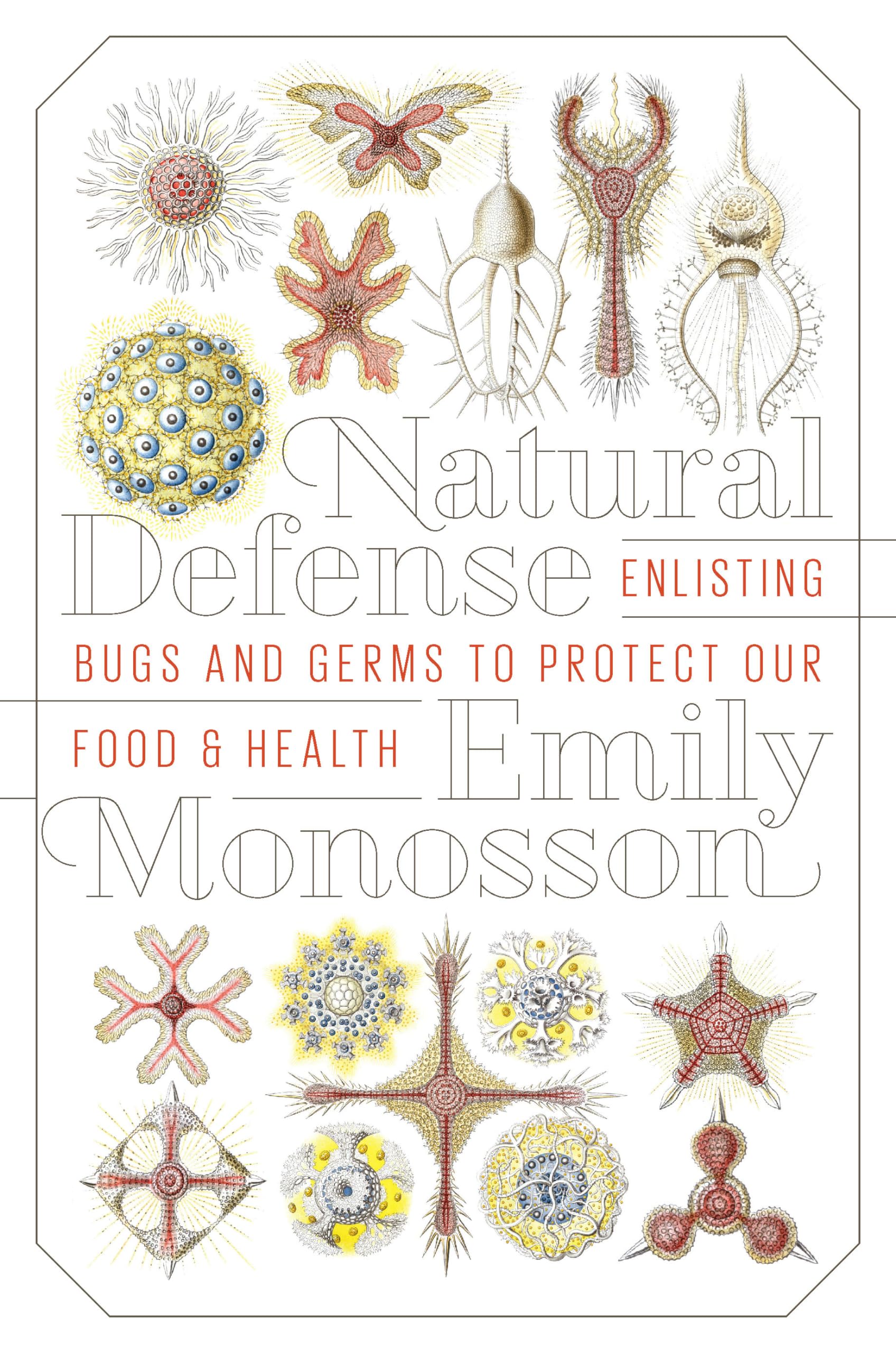Island Press
Natural Defense: Enlisting Bugs and Germs to Protect Our Food and Health
Regular price
$7.95 USD
Regular price
Sale price
$7.95 USD
Unit price
per
Shipping calculated at checkout.
Couldn't load pickup availability
Title: Natural Defense: Enlisting Bugs and Germs to Protect Our Food and Health
Author: Monosson, Emily
ISBN: 9781610917186
Publisher: Island Press
Published: 2017
Binding: Regular Hardback
Language: English
Condition: Used: Very Good
Clean, unmarked copy with some edge wear. Good binding. Dust jacket included if issued with one. We ship in recyclable American-made mailers. 100% money-back guarantee on all orders.
B 1591821
Publisher Description:
For more than a century, we have relied on chemical cures to keep our bodies free from disease and our farms free from bugs and weeds. We rarely consider human and agricultural health together, but both are based on the same ecology, and both are being threatened by organisms that have evolved to resist our antibiotics and pesticides. Patients suffer from C.diff, a painful, potentially lethal gut infection associated with multiple rounds of antibiotics; orange groves rot from insect-borne bacteria; and the blight responsible for the Irish potato famine outmaneuvers fungicides. Our chemicals are failing us. Fortunately, scientists are finding new solutions that work with, rather than against, nature. Emily Monosson explores science's most innovative strategies, from high-tech gene editing to the ancient practice of fecal transplants. There are viruses that infect and bust apart bacteria; vaccines engineered to better provoke our natural defenses; and insect pheromones that throw crop-destroying moths into a misguided sexual frenzy. Some technologies will ultimately fizzle; others may hold the key to abundant food and unprecedented health. Each represents a growing understanding of how to employ ecology for our own protection. Monosson gives readers a peek into the fascinating and hopeful world of natural defenses. Her book is full of optimism, not simply for particular cures, but for a sustainable approach to human welfare that will benefit generations to come.
Author: Monosson, Emily
ISBN: 9781610917186
Publisher: Island Press
Published: 2017
Binding: Regular Hardback
Language: English
Condition: Used: Very Good
Clean, unmarked copy with some edge wear. Good binding. Dust jacket included if issued with one. We ship in recyclable American-made mailers. 100% money-back guarantee on all orders.
B 1591821
Publisher Description:
For more than a century, we have relied on chemical cures to keep our bodies free from disease and our farms free from bugs and weeds. We rarely consider human and agricultural health together, but both are based on the same ecology, and both are being threatened by organisms that have evolved to resist our antibiotics and pesticides. Patients suffer from C.diff, a painful, potentially lethal gut infection associated with multiple rounds of antibiotics; orange groves rot from insect-borne bacteria; and the blight responsible for the Irish potato famine outmaneuvers fungicides. Our chemicals are failing us. Fortunately, scientists are finding new solutions that work with, rather than against, nature. Emily Monosson explores science's most innovative strategies, from high-tech gene editing to the ancient practice of fecal transplants. There are viruses that infect and bust apart bacteria; vaccines engineered to better provoke our natural defenses; and insect pheromones that throw crop-destroying moths into a misguided sexual frenzy. Some technologies will ultimately fizzle; others may hold the key to abundant food and unprecedented health. Each represents a growing understanding of how to employ ecology for our own protection. Monosson gives readers a peek into the fascinating and hopeful world of natural defenses. Her book is full of optimism, not simply for particular cures, but for a sustainable approach to human welfare that will benefit generations to come.

